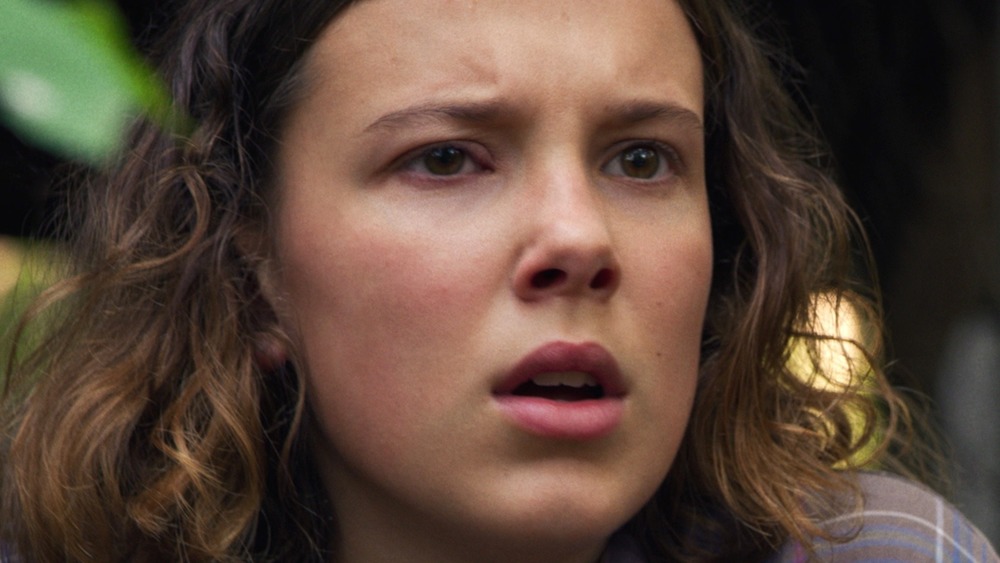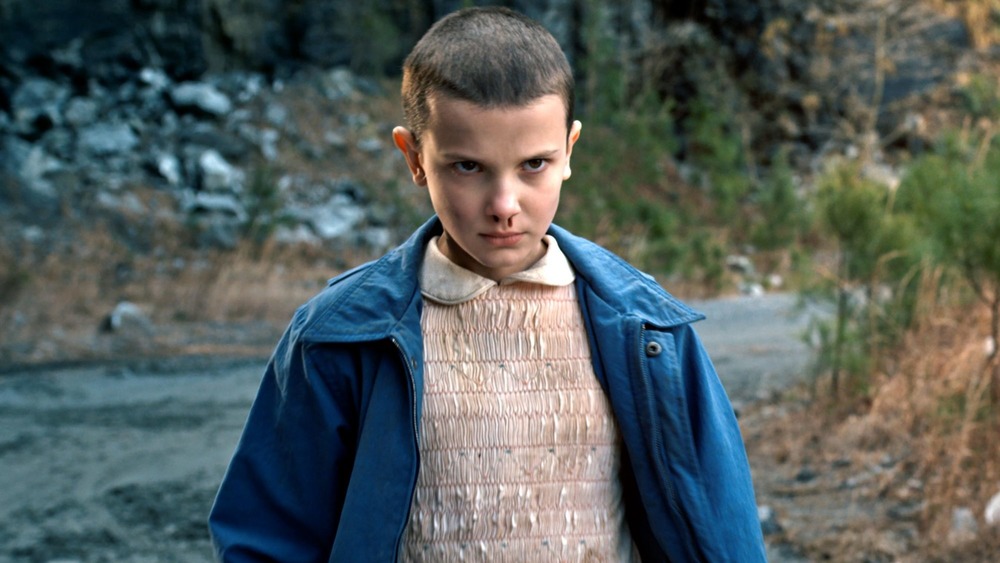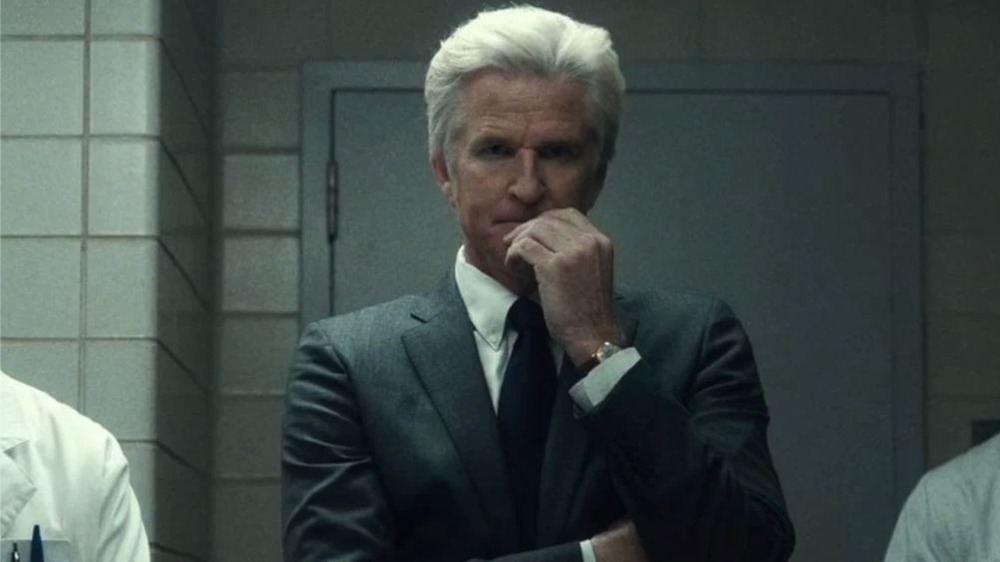How Stranger Things Could Have Been A Very Different Show
When it made its streaming debut in summer 2016, Netflix's pulse-pounding sci-fi drama Stranger Things became an instant cultural touchstone, legitimizing the streamer as a production company on the precipice of becoming an original content powerhouse. It also made stars of its creators the Duffer brothers, reinvigorated the careers of Winona Ryder and David Harbour, and made overnight celebrities of its young cast. Indeed, many praised the show's cast and creatives for taking a character-first approach to the often otherworldly and/or alternate-dimensional narrative.
Several actors from the Stranger Things cast have gone on to bigger things since the show began, despite their continuing with the show through its lauded second and third seasons. Still, it's safe to say none of the series' central cast members has benefited quite as much from their Stranger Things breakout as Millie Bobby Brown, who portrays the troubled, superpowered telepath Eleven in the series. Likewise, few of the Stranger Things players were handed quite as juicy a role, with Eleven's emotional development and adjustment to life among mere mortals affecting and expanding the wondrous world of the show in fascinating and increasingly dangerous ways.
While fans can't wait to see where the Duffers take Eleven and the Hawkins gang in the upcoming season 4, any die-hard fan can tell you she's already come a long way since season 1. That season found an almost completely nonverbal Eleven struggling to survive in the real world after escaping a secret government testing operation in suburban Indiana. But per a recent deep dive into the show's narrative history, it seems the origins of Eleven's staggering abilities were originally quite different.
Eleven's Stranger Things origin story could've been a very different beast
That deep dive was undertaken by the folks at CBR.com, who explored what's known about the early days of Stranger Things' development to assess how certain elements of the show changed prior to its debut. Certain alterations are common knowledge these days, such as that the series was once going to be titled Montauk. But one surprise is how dramatically different Eleven's origin story was at the show's inception. No, she was originally born in the Upside Down or anything like that. Rather, it seems the origin of Eleven's powers wasn't always government science run amok. Well, not exactly.
As we learned in Stranger Things' first two seasons, Eleven gained her abilities after her mother Terry (Aimee Mullins) signed up to participate in Project MKUltra, a covert program dedicated to developing mind-control abilities in humans. The radical experiments, which involved heavy use of psychedelics, were undertaken without the knowledge that Terry was pregnant. Those tests ultimately gave the unborn child the desired abilities, which were further developed and exploited for years after her birth unbeknownst to Terry, who was told she miscarried.
But it seems that on Montauk, Eleven's mom was merely a junkie who'd fed her habits while pregnant. While in utero drug use is still the source of Eleven's powers, that original story found mom and daughter spending a full two years together before G-men showed up to take Eleven away. This dramatic change cannot be understated, as Eleven's lack of parenting by anyone but those in charge of Project MKUltra directly informed how she interacted with every other character on Stranger Things. Likewise, Eleven's subsequent search for the mother she never knew (now a tragic victim as much as her daughter) became a major developmental arc in season 2.
Big bad Dr. Brenner was also quite a different character in the original Stranger Things story
Of course, the Stranger Things fandom would no doubt tell you that the "parent" Eleven did have in the show's first season was as major a presence as any other character. His name was Dr. Martin Brenner, and he was portrayed with a devious icy resolve by Matthew Modine throughout season 1 — which continuously depicted the depraved duplicity he used in manipulating his most gifted (and essentially kidnapped) young charge Eleven.
Needless to say, Dr. Brenner's towering, shadowy presence informed the show's narrative in ways too numerous to fathom. But per the CBR.com article, he was far less of a character in the Montauk days. In fact, he didn't even have a proper name, with the Duffer brothers apparently calling him simply Agent One. Given the number-based names he'd give his test subjects, calling him Agent One actually doesn't seem such a bad idea. But the decision to name him also humanized him, making his unfathomably immoral actions all the more unsettling.
It also undoubtedly helped the character develop his relationship with Eleven, who even took to calling him "Papa" at the not-so-good doctor's request. And one can only assume that once the character began to develop into the evil Dr. Brenner, the scenes with him and Eleven took on depths previously unseen, likely helping to humanize the superpowered young woman as much as the immaculately suited mad scientist.
As noted, it really is all but impossible to imagine Eleven's traumatic backstory without Modine's Dr. Brenner casting his vile shadow over every aspect of it. Ditto for the entire Stranger Things narrative for that matter.


